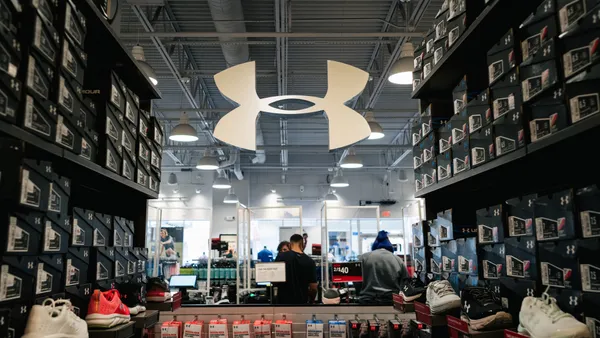Dive Brief:
-
Tiffany & Co. on Wednesday announced a major transparency initiative around its diamond sourcing, saying that it has begun sharing the provenance of its newly sourced, individually registered diamonds and that by 2020 it will share information about their “craftsmanship journey,” including where its cutting and polishing workshops are located.
-
With this "Diamond Source Initiative," Tiffany is tracing each individually registered diamond of 0.18 carats or larger using a unique "T&Co" serial number "etched by laser and invisible to the naked eye, and providing consumers geographic sourcing information specific to their diamond," according to a company press release.
-
Effective today, information about diamond provenance is being "clearly displayed" in store cases, and information on geographic sourcing of all individually registered diamonds will be available via sales professionals and customer service, the company said. In the first quarter, Tiffany will begin including provenance of individually registered diamonds on the Tiffany Diamond Certificate. Next year the jeweler also "will begin sharing craftsmanship journey (such as cutting and polishing workshop location)," the company said.
Dive Insight:
"Blood diamonds" or "conflict diamonds" — defined in the 1990s by the United Nations as those sold to fund violence in brutal wars in parts of Africa — remain in the supply chain, despite the U.N.'s initiation in 2000 of the "Kimberley Process," an international certification system of rough diamonds.
Tiffany on Wednesday said that its certification already exceeds Kimberley standards and that its new initiatives set the highest bar in the industry.
"Tiffany & Co. has long been committed to diamond traceability and going above and beyond industry norms to promote the protection of the environment and human rights," Tiffany Chief Sustainability Officer Anisa Kamadoli Costa said in a statement. "A transparent journey of responsible sourcing reflects the many positive and far reaching benefits along every step of the diamond supply chain."
That attitude is furthered by its new initiative, which will resonate with consumers, especially younger ones who are especially keen on sustainability and human rights matters, and who are important to Tiffany, according to GlobalData Retail Managing Director Neil Saunders. Tiffany has recently gained traction in a turnaround effort devised to draw in younger customers, with the introduction of its "Paper Flowers" line and a new engagement ring design.
"Aside from these things, as a leading luxury jeweler it is good for Tiffany to provide visibility and traceability on its diamonds," he told Retail Dive in an email. "It is reassuring for customers and allows Tiffany to be beyond reproach when it comes to sourcing. In essence, it is a kind of insurance policy to protect the equity of the brand."
In cases where the provenance of a diamond is unknown — as with "heritage stones" that predate the new policy — Tiffany will still provide confirmation that the diamond was sourced with industry-leading practices, the company said. In addition to exceeding the Kimberley Process certification requirements for rough diamonds, Tiffany uses its own Diamond Source Warranty Protocol for polished stones. The jewelry retailer also noted that it will designate some diamonds "Botswana sort," indicating they come from a "trusted supplier with several responsibly managed operations" in Southern Africa and Canada.













